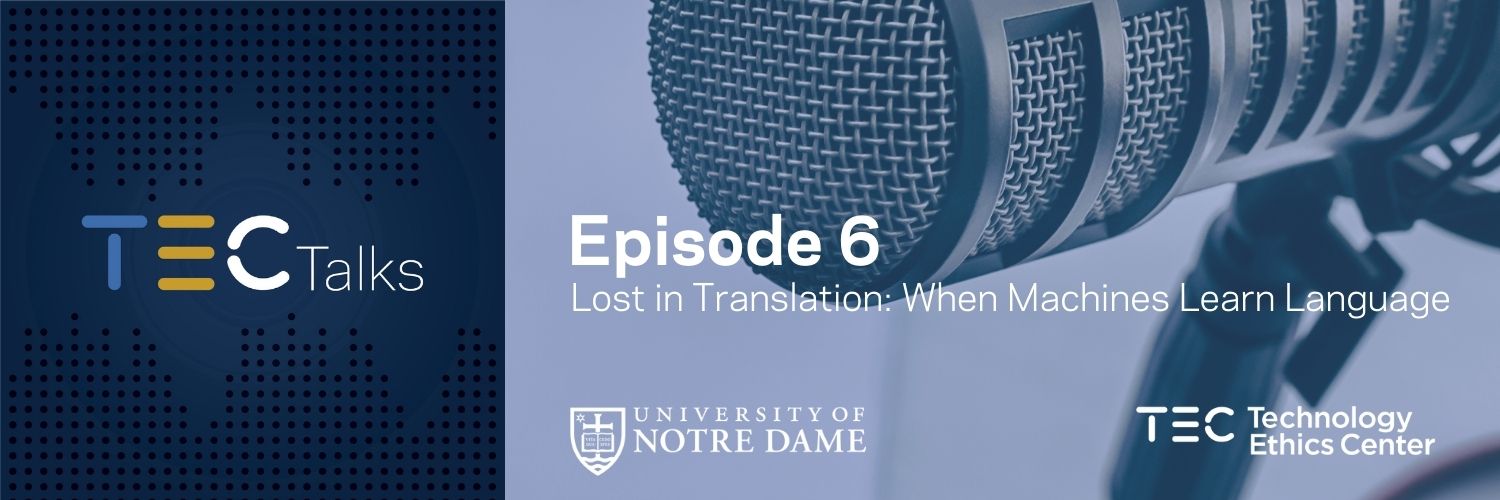Lost in Translation: When Machines Learn Language

Host Kirsten Martin is joined by Amandalynne Paullada, a postdoctoral fellow at the University of Washington’s Department of Biomedical Informatics and Medical Education. Amandalynne recently earned her Ph.D. in computational linguistics from Washington, where her dissertation examined the social impact of natural language processing, or NLP, wherein computers are programmed to learn human languages. She came on the show to talk about a paper she authored in The Gradient titled “Machine Translation Shifts Power,” which was a runner-up for the inaugural Gradient Prize. Amandalynne and Kirsten begin by discussing the use of platforms like Google Translate to analyze the social media feeds of people seeking to enter the United States, a task for which those tools were not designed and one where mistranslations can have significant negative repercussions for the individuals being vetted. They then talk about translation being a means to exert power since well before the advent of machine learning and the questions raised by using technology to translate a language you don’t otherwise understand. Their conversation also covers the implications of tech giants having access to massive amounts of natural language data, minimizing the role of trained interpreters; the notion of “paranoid reading” with respect to translated texts; and how NLP and human translators can work together to produce translations that are not just technically but also contextually accurate.
Additional Resources
Presented by Notre Dame Technology Ethics Center
- Article Discussed in the Episode: “Machine Translation Shifts Power”
- Amandalynne’s Bio
- Episode Transcript
At the end of each episode, Kirsten asks for a recommendation about another scholar in tech ethics (or several) whose work our guest is particularly excited about. Amandalynne highlighted three:
- Chelsea Barabas (MIT)
- Ranjit Singh (Data & Society Research Institute)
- Danielle Carr (UCLA)
